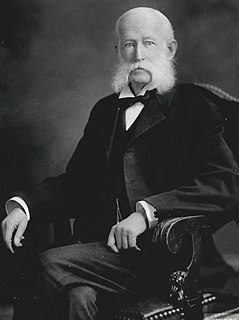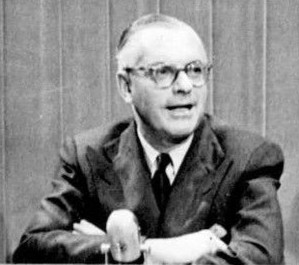A Quote by Ayn Rand
He wanted nothing, for the time being, except to understand .... Without advice, assistance or plan, he began reading an incongruous assortment of books; he would find some passage which he could not understand in one book, and he would get another on that subject .... There was no order in his reading; but there was order in what remained of it in his mind.
Related Quotes
If I were reading a book and happened to strike a wonderful passage I would close the book then and there and go for a walk. I hated the thought of coming to the end of a good book. I would tease it along, delay the inevitable as long as possible, But always, when I hit a great passage, I would stop reading immediately. Out I would go, rain, hail, snow or ice, and chew the cud.
Well, we think that time "passes," flows past us, but what if it is we who move forward, from past to future, always discovering the new? It would be a little like reading a book, you see. The book is all there, all at once, between its covers. But if you want to read the story and understand it, you must begin with the first page, and go forward, always in order. So the universe would be a very great book, and we would be very small readers.
I was one those kids who had books on them. Before weddings, Bar Mitzvahs, funerals and anything else where you're actually meant to not be reading, my family would frisk me and take the book away. If they didn't find it by this point in the procedure, I would be sitting over in that corner completely unnoticed just reading my book.
I was one of those kids who had books on them. Before weddings, Bar Mitzvahs, funerals and anything else where you're actually meant to not be reading, my family would frisk me and take the book away. If they didn't find it by this point in the procedure, I would be sitting over in that corner completely unnoticed just reading my book.
If it was a biopic about Glenn Greenwald, I would have immersed myself more fully in his personal life and gotten to know him as much as I could, but because it was much more about his relationship to this particular situation, to The Guardian, to Laura Poitras, and to Ewen MacAskill, and Edward Snowden, I was able to really learn a lot about him from reading his book and reading his many articles and accounts of that time.
Reading is a pleasure of the mind, which means that it is a little like a sport: your eagerness and knowledge and quickness count for something. The fun of reading is not that something is told to you, but that you stretch your mind. Your own imagination works along with the authors, or even goes beyond his, yields the same or different conclusions, and your ideas develop as you understand his.
One can't prescribe books, even the best books, to people unless one knows a good deal about each individual person. If a man is keen on reading, I think he ought to open his mind to some older man who knows him and his life, and to take his advice in the matter, and above all, to discuss with him the first books that interest him.
I read continually and don't understand writers who say they don't read while working on a book. For a start, a book takes me about two years to write, so there's no way I am depriving myself of reading during that time. Another thing is that reading other writers is continually inspiring - reading great writers reminds you how hard you have to work.
We can no longer communicate with the apes by direct language, nor can we understand, without special study, their modes of communication which we have long since replaced by more elaborate forms. But it is at least presumable that they could still detect in our speech, at least when it is public and elaborate, the underlying tone values with which it began. Thus if we could take a gibbon ape to a college public lecture, he would not understand it, but he would "get a good deal of it." This is all the students get anyway.
I began writing books after speaking for several years and I realize that when you have a written book people think that you're smarter than you really are if I can joke. But it's interesting. People will buy your book and hire you without reading the book just because you have a book and you have a book on a subject that they think is of interest to themselves or e to their company.
When I first moved to LA, no one could understand a thing I said, you would think I was speaking another language. Every time I would order something at Starbucks, they would go, 'Huh? What did you say?' My accent was an issue and my low voice was as well. They thought I should be more girlie. But that's who I am.
But, you have to watch them in order. That's very important because, as it turns out, stories have to be told in order. It's like reading a novel. There are times when it's tiring. And then, you get hooked and it's a page-turner, and you really want to keep reading. I do think there will be some fatigue that sets in.





































